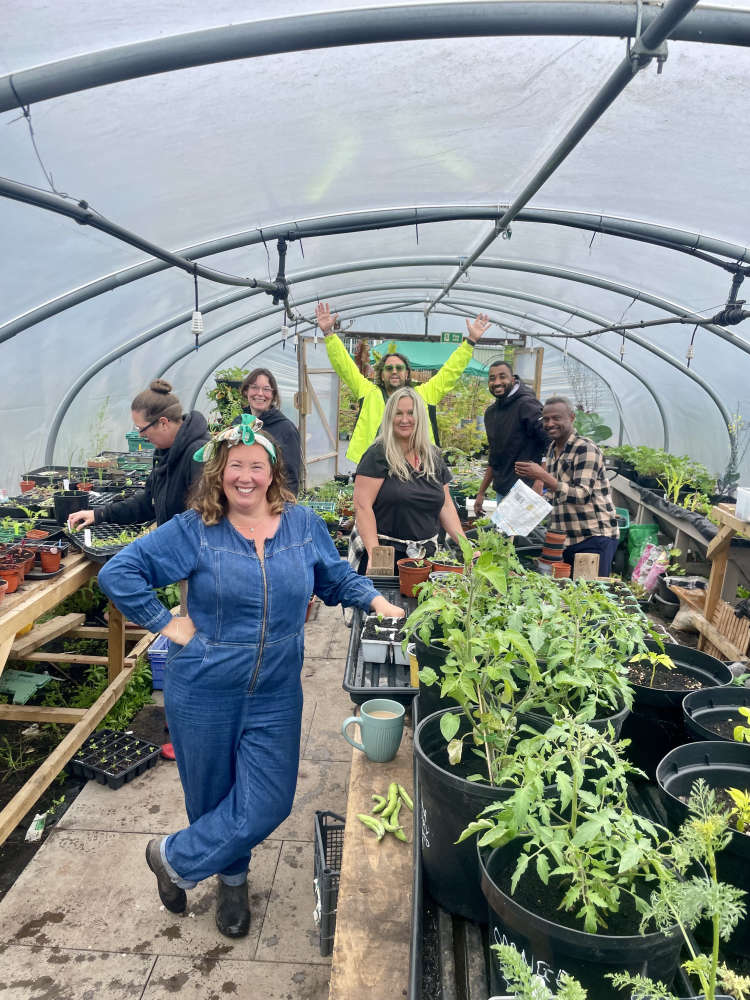
I am surrounded by goats. One has its front hooves resting on my belly as it looks longingly up at a piece of shrubbery in my left hand. Two more are playfully butting heads in the straw.
Anyone would think I was out somewhere in the countryside, in the picturesque greenery of Saddleworth or one of Greater Manchester’s suburban country parks. But I’m not. I’m in Failsworth.
Unassumingly tucked behind a plastic factory in the heavily built-up neighbourhood on the border of Manchester and Oldham, there is a truly magical secret garden.
Northern Lily is a community orchard and green space that somehow packs in everything city-dwellers never knew they needed: from rows of fruit trees ready for the picking to three cheeky therapy goats called Coconut, Rusty and Bramble.
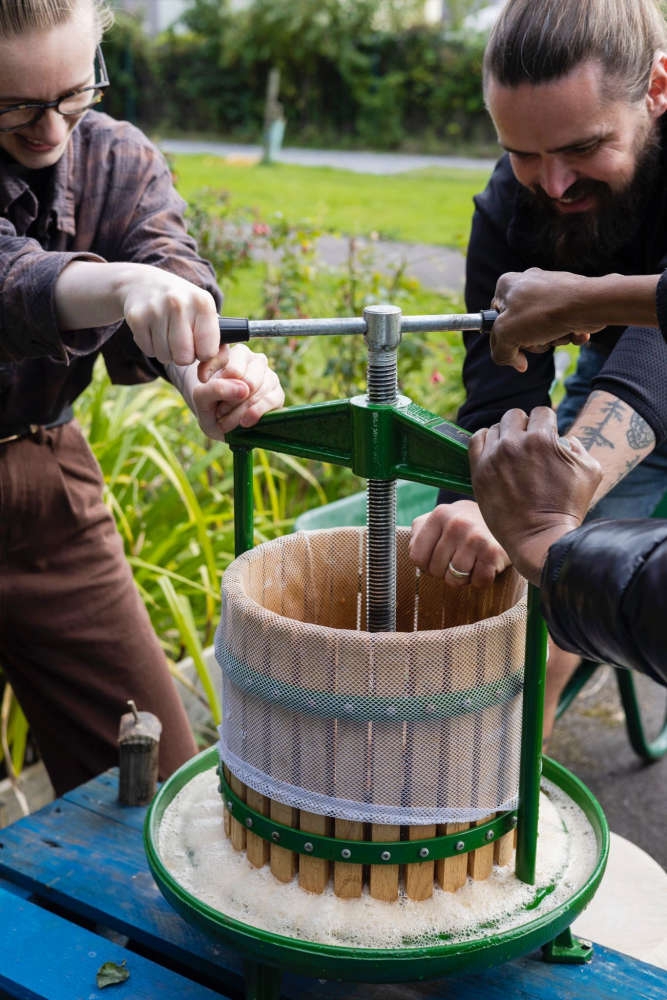
Once little more than a forgotten plot of land behind a derelict building, the community garden recently won a ‘Best Community Plot’ award while undertaking its mission to connect lifelong urbanites like me with the natural world and homegrown food.
“Over the last year we’ve won all sorts of national and local awards and have been getting more and more recognition,” said Victoria Holden, director at Northern Lily, pointing at a low table crammed full of trophies and plaques. “But we want to keep it hyper-local because for me, I’m not aiming for world domination, I just want my community to be able to connect with nature.”
Victoria won Best Community Plot at GARDENA’s Top of the Plots competition.
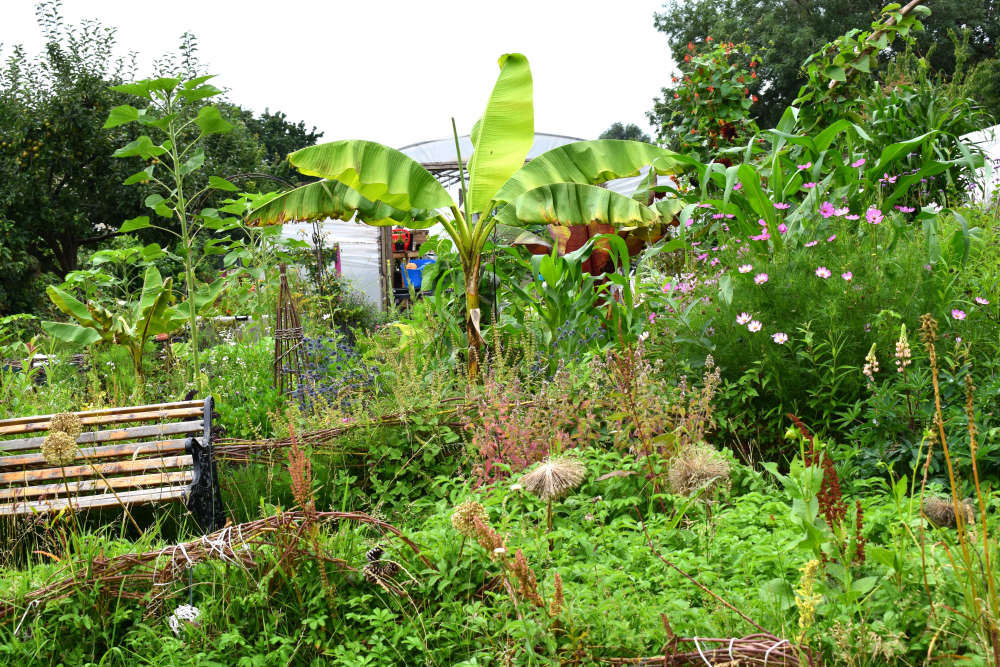
The plot includes a 20-year-old fruit orchard with 166 trees growing several types of apples, pears and plums. Growing tunnels hide a global assortment of banana trees, pak choi, Bengladashi chilis and other veg.
Free-ranging pet chickens that stalk visitors in hope of a pocketful of snacks. And buildings, sheds and outhouses double-up as class-rooms for all ages, from a forest school for babies and toddlers to beekeeping and horticultural classes for nine to 90 year-olds.
As if that wasn’t enough, Northern Lily also hosts a paddle sports centre on the nearby canal – taking classes out on kayaks, paddle boards and canoes – and, of course, the goats.
Most of their events are free or kept at low prices to make them accessible for the local community – though visitors in the know have started coming from much further afield, too. It’s a perfect low-cost day out for families – and a breath of fresh air for adults too.
The grounds are a joy to walk around – though you’d be advised to wear your wellies. A path leads through the middle of planted verges, touring through the growing tunnels and then slaloms off into vegetable beds and the lines of fruit trees beyond.
There’s plenty of room for little ones to run riot – and help themselves to a freshly-grown snack while their at it. But it wasn’t always like this.
When Victoria first spotted the abandoned council-owned land three years ago, it was nothing but a semi-derelict building and a field of rotting fruit.
The orchard had been forgotten about for a number of years, with fruit going to waste by the kilo every year.
The building, maintained by the council’s under-resourced environmental department, was largely shuttered up and in disrepair.
“Another couple of years and this would have been gone,” Victoria said, gesturing at the building around us, which stands at the entrance to the gardens and is used alternatingly as a base of operations, events space and classroom. “The council gave me the keys – I could see the potential straight away.”
Her first step was to organise a community harvest.
“I grew up on the edge of Manchester on a council estate that ended in farms and green space. I remember running around finding newts, or going to spy on what happened on the farmyards.
“Then the M60 was built through the middle of it and that all changed. I don’t think kids get that anymore – or adults. We’re trying to bring those experiences back.
“More and more green spaces in Greater Manchester are being lost to development, so we need to hold on to spaces like this.”
The grounds were set up with the help of First Choice Homes Oldham, and the support of the council, who still own the land. In just three years, it’s become a ‘hidden gem’ for more than 4,000 people – and grown over a tonne of food for 12,750 meals.
The centre holds regular free community dinners and food festivals – such as Apple Day on October 25th.
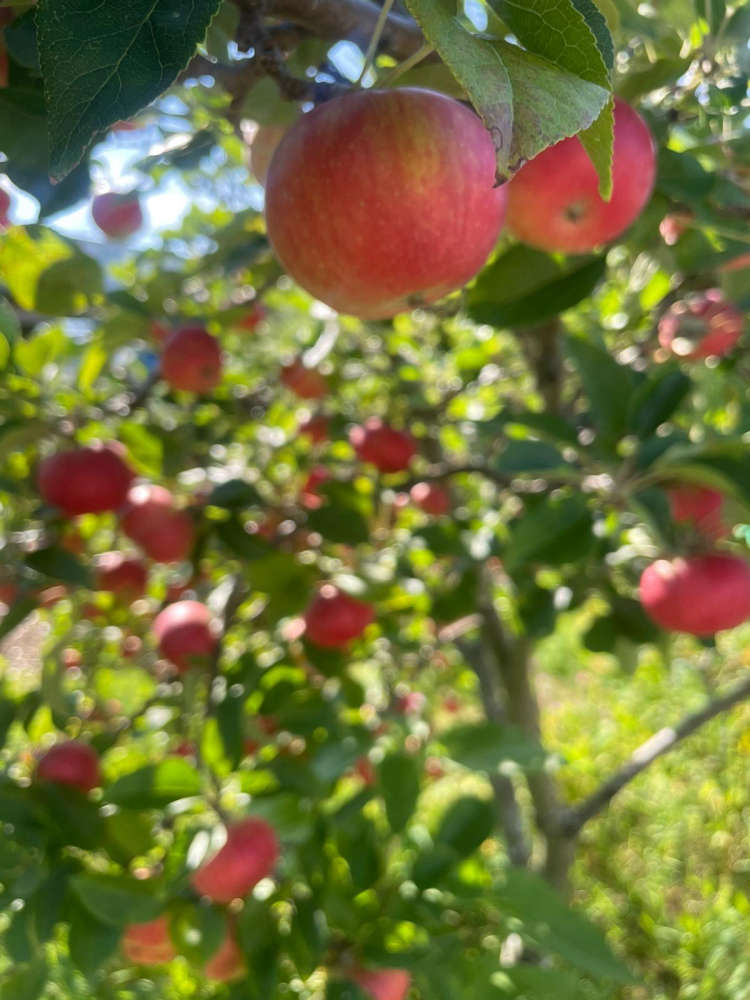
And there’s nothing like food to bring people together.
“You do see how it brings the community together,” Victoria said. “We often have people here who are asylum seekers or from different communities that don’t usually mix. And you see how people start to interact with each and even helping each other out.
“We don’t set out to do that – that’s not what we’re here for, we’re just here to grow fruit and veg! – it just happens naturally. It creates a community that cares about each other but it’s not forced on people.”
But at its heart, the gardens are simply about sparking a bit of priceless love and joy for the natural world – whether that’s by going newt-hunting with torches and wellies with little ones, or learning ‘no-dig’ techniques for sustainable gardening.
It’s well worth a visit. Goats, boats, and a secret garden – what more could you ask for?


 The ‘twirly’ problem that plagued Greater Manchester for 20 years – until a ‘lifechanging move’
The ‘twirly’ problem that plagued Greater Manchester for 20 years – until a ‘lifechanging move’
 Two teenage boys rushed to hospital after incident on Huddersfield Road
Two teenage boys rushed to hospital after incident on Huddersfield Road
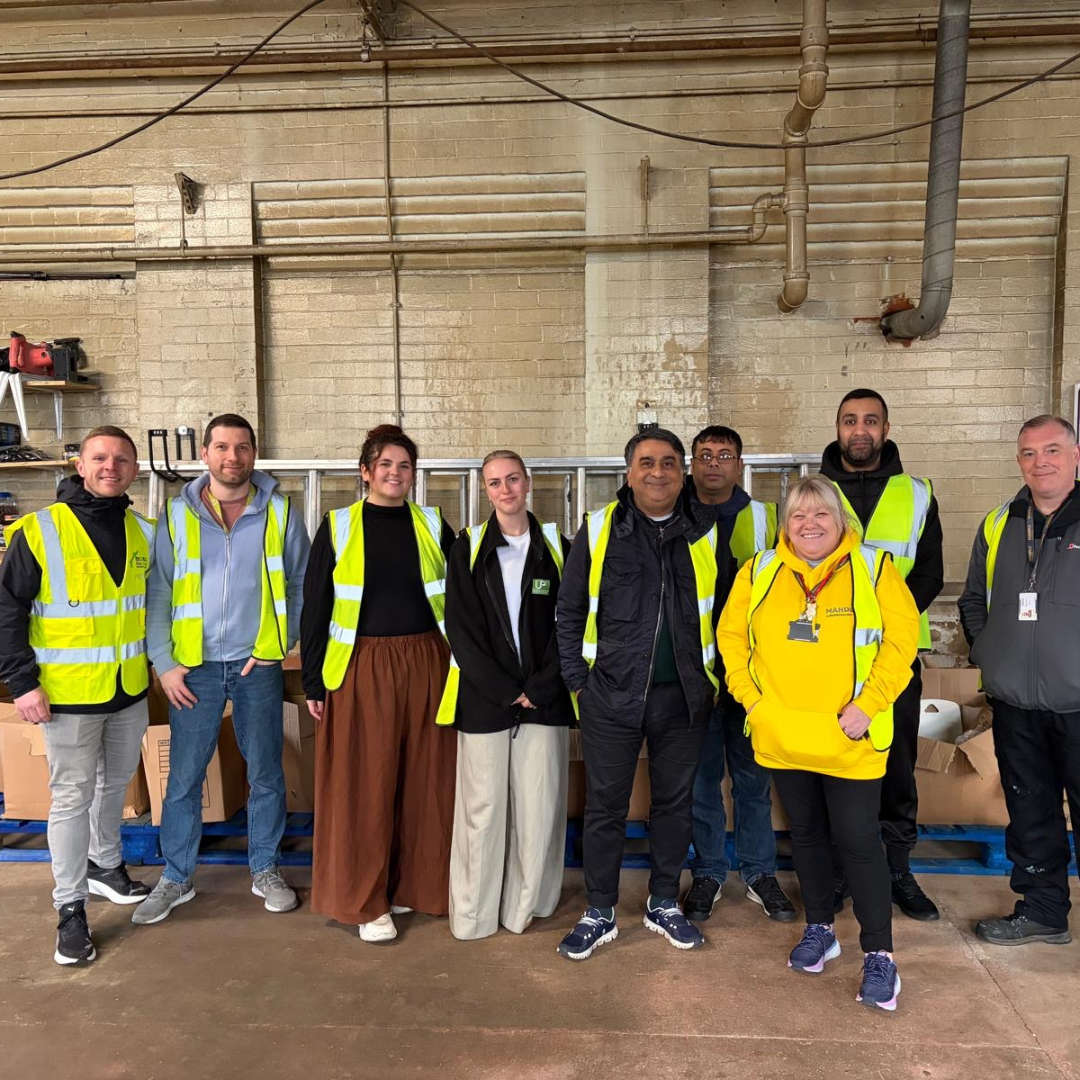 FCHO partners with local business Ultimate Products to provide customers with free household items
FCHO partners with local business Ultimate Products to provide customers with free household items
 Mobile phone chaos and frustration
Mobile phone chaos and frustration

